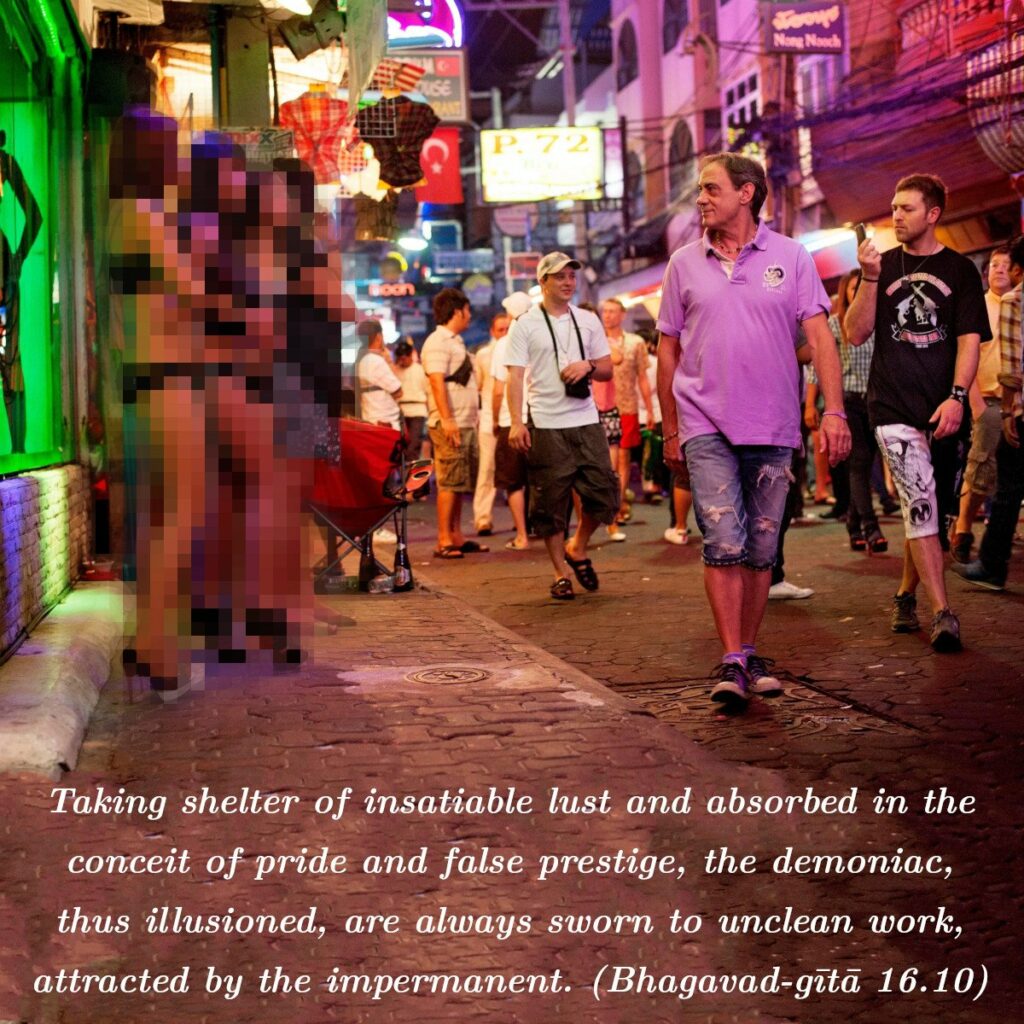काममाश्रित्य दुष्पूरं दम्भमानमदान्विता: |
मोहाद्गृहीत्वासद्ग्राहान्प्रवर्तन्तेऽशुचिव्रता: || 10||
kāmam āśhritya duṣhpūraṁ dambha-māna-madānvitāḥ
mohād gṛihītvāsad-grāhān pravartante ’śhuchi-vratāḥ
kāmam—lust; āśhritya—harboring; duṣhpūram—insatiable; dambha—hypocrisy; māna—arrogance; mada-anvitāḥ—clinging to false tenets; mohāt—the illusioned; gṛihītvā—being attracted to; asat—impermanent; grāhān—things; pravartante—they flourish; aśhuchi-vratāḥ—with impure resolve
Translation:
Giving themselves up to insatiable desires, full of hypocrisy, pride, and arrogance, they hold false views through delusion and act with impure resolve.
Commentary:
Dushpuram: Desire is insatiable. The more it is fed, the more it wants. Its hunger multiplies with every enjoyment. In the 3rd Discourse, the Lord has already described it as ‘insatiable like fire’ (duṣhpūreṇānalena cha). Therefore those who are enslaved by it, lead a restless and frustrated life.
Dambhamanamadanvitah: Pride, self-conceit, arrogance, these are the real enemies of man, separating him from all others by the assertion of superiority. Why should man subject himself to these evils? The answer is given – mohat. Ignorance is the cause. He deludes, denies truth, accepts, false ideas, and does things which ought not to be done.
Asuchivratah: Vrata refers generally to vows of a sattvic nature, like fasting, silence etc. Such are (Suchi-Vratas) auspicious vows helpful to man in self-purification. But men of demonical nature adopt impure and unholy habits like flesh-eating, liquor and persist in them as sacred practices. Determination, performance of vows are no doubt good, but it should be for pure and sacred purposes and not for foul and unholy things.
Question: What is the nature of Kama?
Answer: It is insatiable.
Question: What further are the qualities of persons having demonical nature?
Answer: 1. They yield to insatiable desires, 2. They are the victims of pride. self-conceit and arrogance, 3. They are ignorant, 4. They adopt impure and unholy vows.
Bhagavad Gita: Chapter 16 🔻 (24 Verses)
